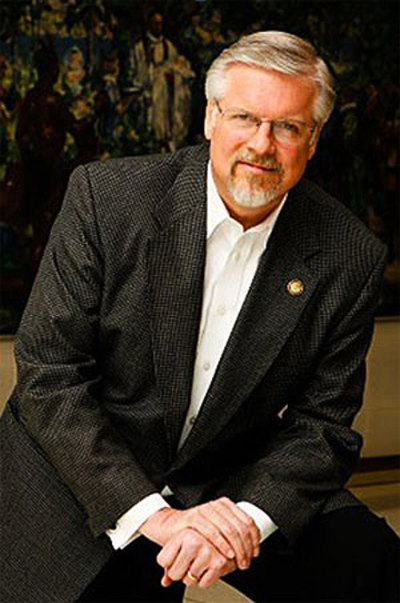Constructive criticism for SBC President JD Greear on homosexual sin

J.D. Greear is the pastor of Summit Church in Durham and the current president of the largest Protestant denomination in America. He is a fellow North Carolinian and Southern Baptist. I genuinely hold him in the highest esteem and much admire his preaching ministry.
Someone once said, “Nothing is easier than fault-finding; no talent, no self-denial, no brains no character is required to set up the grumbling business.” So true! Nevertheless, something Abraham Lincoln once said is just as true: “He has a right to criticize who has a heart to help.”
It is in a spirit of constructive criticism that I offer the following.
In a recent post on Greear’s blog titled: Three Ways We Go Wrong When Discussing Homosexuality, Grear makes theological assertions regarding homosexuality that are in error.
Greear begins well by arguing that Christians should do a better job in the way they articulate the Bible’s position on the subject, as well as caring for those who experience same-sex attractions. Moreover, he says we are “wrong if we believe God doesn’t care about our sexuality.” God does care, argues Greear. So the question is of high relevance.
He correctly adds that homosexuality is reflective of our corrupt, sinful natures and the need to be “born again,” and it cannot be excused based on arguments which say, “I was born this way.”
However, he undermines the severity of this sin in his second point by asserting a seriously flawed understanding of Romans chapter 1, when he writes:
“In Romans 1, Paul lists same-sex behavior as one corruption among many. We may not think of deceit, boasting, greed, or a rebellious attitude toward parents as equally depraved as same-sex behavior. But if you look at Paul’s list, they are.”
No, they aren’t! Paul is making no such argument. Instead, Paul is using homosexual practice as an example of the way idolatry negatively impacts the deepest levels of human behavior, even something as basic and fixed as gender, and its purpose to effectively serve the human species. Homosexuality is not merely an undisciplined desire, but a disorder that fundamentally countermands and contradicts God’s creative will. In other words, Paul’s point is that people can so suppress the truth and abandon the knowledge of God, that they will wickedly pervert the natural order to God’s displeasure and their own demise. To contend that deceit, boasting, greed, a rebellious attitude toward parents or other sins are equally depraved is to completely miss the point of Romans chapter 1. This is not the apostle’s primary contention, nor is it even a sub-point!
Greear goes on to say homosexuality is not an “uber-sin in a categorically different realm.” I beg to differ sharply. He further asserts that religious pride and materialism are awful sins too, and he is right. But they are categorically different.
The prevalence of homosexuality is unquestionably reflective of an idolatrous culture destined for destruction, ready and deserving of fire and brimstone being rained upon it (Gen. 18-19) or being vomited out of the land (Lev. 18). The seriousness of the sin should not be diminished as equal with other sins.
What Greear advocates is a new and popular narrative, a point of view warmly being embraced by much of conservative evangelicalism, but it is not derived from a meaningful or proper exegesis of scripture. Instead, it is a position imposed on scripture, perhaps out of well-intended motives to be more loving and more balanced in addressing the question of homosexuality. Still, the argument is not properly drawn from the Bible. The Word of God does substantiate a hierarchical view of sin in many places, and homosexuality is depicted as categorically egregious.
Robert A. J. Gagnon, a former professor of New Testament, at Pittsburgh Theological Seminary, best disputes the egalitarian view, noting:
“God has given us all a sense of right and wrong with our consciences. We rightly have a sense that some actions are more evil than others and codify that sense in our laws, however imperfectly. Granted, even our consciences have been influenced by the corrupting influence of sin, and nowhere more so than when we excuse our own sin. Moreover, our relative ordering of sins can be skewed by our own sinful desires. However, the principle that some sins are more heinous than others, not just in their effects on humans but also in the estimation of God, is God-given. If we didn’t have that sense within our moral compass, society would be far more perverse than it already is.
“Nobody actually lives in the belief that all sins are equally severe on a moral plane. Indeed, often it is those who argue in connection with homosexual practice that all sin is equal that get particularly upset if one compares homosexual unions to (adult) incest, bestiality, or pedophilia. They do so precisely because they regard incest, bestiality, and pedophilia as ‘really bad’ and don’t want homosexual behavior to be associated with them. Such a reaction, however, is already a concession to the obvious principle that some sins are worse than others. Not a day goes by that people don’t regularly assess some actions as greater wrongs than others. In my household if my youngest child goes to bed but sneaks in a little flashlight to do some reading or drawing beyond any reasonable bedtime and against her parents’ wishes, she has done wrong but in a relatively light way as compared to, say, hitting her sibling.
“Not only is the belief that all sins are equal to God in all respects manifestly absurd to human logic and experience, but also the great Christian traditions are agreed that some sin is worse than others.”
Homosexual behavior is a heinous sin to God and never spoken of in Scripture but in a most unfavorable light. We are not doing the church, the culture, or even the prospect of the homosexual’s redemption any favors by diminishing the actual weight of it by equalizing it with lesser sins.
This is not to say that all sin doesn’t separate us from God. It does. This is not to say that the religiously proud self-righteous church member doesn’t need redemption as much as those who engage in same-sex relationships. This is not to say that some are saved differently or on a different basis than the way of the Cross of Christ. This is not to contend that we shouldn’t be sensitive to people caught up in the sin of homosexuality. We should.
Nevertheless, it is to say that none of these concerns are relevant to the fact that sins do differ in their significance and God regards homosexual sin as particularly and gravely wrong. Furthermore, it is to say that Greear’s position is outside the historic and orthodox view of both the Protestant and Catholic tradition.
Let’s not also forget the political left is counting on the easing of resistance and acceptance of homosexuality as a major means of shutting down religious liberty.
So Greear is right in his initial arguments, sexuality does matter and we should sensitively articulate the question of same-sex behaviors biblically.
However, I beseech my brother, who serves in a profound position of influence, to correct his stance regarding the gravity of this sin. His recent contentions on his blog seriously miss the mark and lend to the church dropping its guard, as well as obstruct its mission to effectively engage the culture on this issue.
Homosexuality is emphatically different than other sins. It poses an enormous threat to family, health, the hope of a bright future for our country, and even the propagation of the Gospel.




























